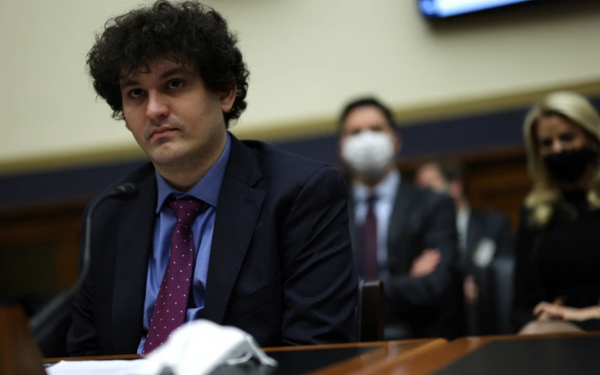Following his arrest in the Bahamas on Monday, the U.S. Securities and Exchange Commission (SEC) announced on Tuesday morning that it has filed charges of fraud against disgraced FTX founder Sam Bankman-Fried (aka SBF). The SEC stated in a news statement that he is being probed for other securities law breaches in addition to fraud accusations related to FTX equity investors, and that further investigations are still open into other parties.
However, the Southern District of New York’s Attorney’s office and the Commodity Futures Trading Commission (CFTC) have both brought complaints against SBF in “parallel actions,” meaning the SEC isn’t the only one involved.
U.S. securities regulators claim that despite Bankman-promotion Fried’s of FTX as “a safe, responsible crypto asset trading platform,” the company’s founder—who has been called “crypto’s white knight”—engaged in a “years-long fraud” to conceal from FTX investors that their money was being transferred to SBF’s Alameda crypto hedge fund. The SEC also has issues with the amount of illiquid assets like as FTX-affiliated tokens held by Alameda, which is a major source of FTX’s risk.
Among the many allegations made in the complaint is that SBF used customer funds from FTX via Alameda to make VC investments, “lavish real estate purchases,” and political donations, all of which have been documented in various reports and, in some cases, by SBF’s own admission in interviews conducted after the collapse of his businesses.
In a statement released in conjunction with the announcement of the charges, SEC Chair Gary Gensler restated his long-held belief that crypto trading platforms do, in fact, need to conform with current securities rules. Since SBF’s particular accusations in this action include allegations of violation of the Securities Act of 1933 and the Securities Exchange Act of 1934, this looks to be perhaps the most impactful and substantial test of that stance to date. In addition to financial penalties, a conviction might result in a lifetime prohibition on SBF dealing securities or serving as an officer or director of a company.

Subtly charming pop culture geek. Amateur analyst. Freelance tv buff. Coffee lover
